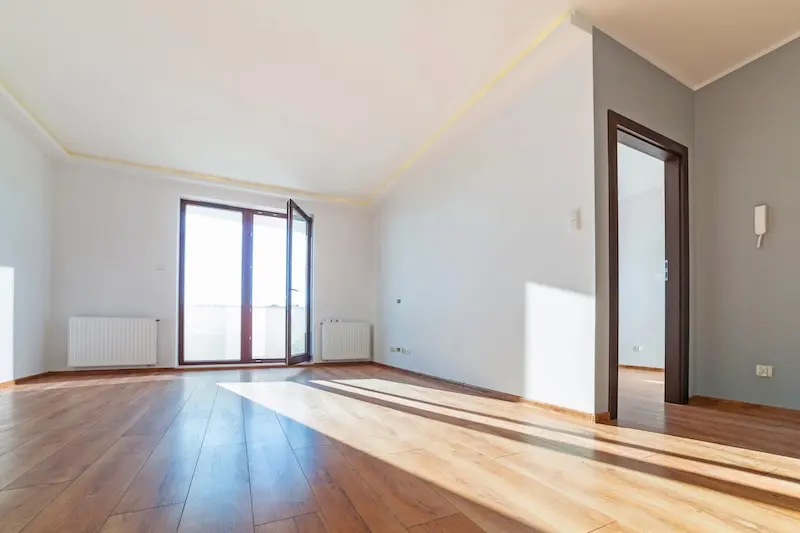From a legal standpoint, buying or selling an apartment differs in some ways from purchasing a house, so for those ready to make the move, it’s essential to understand the specific process of conveyancing for apartments.
Whether you are swapping out your apartment for a house with a garden, or perhaps purchasing an investment property in a high-rise block of flats, being prepared for the process ahead can save time, money and stress.
In Ireland, the population has risen in recent years, leading to a major housing crisis, which in turn has led to an increase in the number of apartments being built in the cities. Taking Q2 for 2025 as an example, just over 3,000 apartments were built between the months of April, May and June, which more than doubled the same time the previous year. This trend shows that apartments stand out as a great option for those wanting to embrace city living.
In this guide, we provide an overview of what to expect, including the legal steps, likely costs, and common pitfalls to watch out for when dealing with apartment conveyancing.
What is conveyancing for apartments?
Generally speaking, conveyancing refers to the legal transfer of ownership of property from one person to another. This term covers all types of property transfer: houses, apartments, commercial spaces and land. And while the conveyancing process itself is similar for houses and apartments, the latter require additional legal checks because they form part of a larger building or development.
Issues such as management companies, service charges, and shared facilities must all be considered before the purchase can be completed.
Let’s look at the different stages in the conveyancing process for apartments.
Conveyancing for apartments: The key stages of the process
1. Reviewing the title and leasehold
Most apartments in Ireland are sold on a leasehold basis, rather than freehold, which would normally be the case for houses. This means the buyer acquires the right to occupy the apartment for a set number of years, but does not own the land or building outright. So, it’s not as straightforward as transferring the property from one person to another, and that’s it, done and dusted for good.
When purchasing an apartment, your conveyancing solicitor must carefully review:
- The length of the lease remaining.
- Any restrictive covenants or obligations within the lease.
- Whether ground rent is payable.
As any property expert worth their salt will tell you, the property market can rise and fall in the blink of an eye. So, if you’re considering buying an apartment on a leasehold basis, the length of the lease agreement will stand out as an important factor. Essentially, if the lease is too short, it may affect the property’s market value, which in turn can have an impact on mortgage eligibility.
2. Management company and service charges
If you purchase a house with a lovely garden, you are ultimately responsible for the upkeep of your home and garden for as long as you remain the homeowner. However, apartments are generally managed by an owners’ management company (OMC).
Your solicitor will confirm:
- That the management company is properly registered and compliant.
- Details of annual service charges and sinking fund contributions.
- The standard of building maintenance and the financial health of the OMC.
A poorly run management company can lead to escalating costs and unresolved maintenance issues. This is why it’s so important to have all these details confirmed before signing on the dotted line.
3. Planning and building compliance
While the chances of a fire starting in an apartment are much the same as any other residential property, the potential for death, injury and damage is much greater. This is because you have far more people essentially living under one roof, which means that all these occupants are at risk should the building suffer damage due to fire, for example. This additional element of risk highlights the importance of building regulations and fire safety compliance.
Therefore, a crucial step in the process is to ensure that the apartment and the overall development comply with planning permissions and building regulations. Your solicitor will verify compliance certificates, fire safety certification, and any history of remedial works. Once you have these documents to hand, you can purchase your apartment safe in the knowledge that it’s safe as houses, as they say.
4. Mortgage and lender requirements
We touched on mortgage eligibility and market value in a previous point. If purchasing with a mortgage, the lender will have specific requirements regarding the title and lease so that the mortgage is secured by an adequately valued property. Your solicitor ensures these conditions are met to allow loan funds to be drawn down.
5. Contracts and closing
Once all due diligence is complete, it’s time for the most exciting part of the journey: the signing of the contracts. On closing day, the purchase money is transferred, and ownership of the apartment legally passes to the buyer.
Common pitfalls during conveyancing for apartments
As with any conveyancing journey, there are common issues that can delay or derail the process. Here are some obstacles that get in the way of smooth conveyancing for apartments:
- Unclear lease terms – Short leases or complex restrictions can deter buyers or lenders.
- High or unexpected service charges – The joy of owning your dream apartment can be marred by potential service charges, which may significantly impact affordability.
- Poorly managed developments – Weak financial controls in the OMC can lead to large, unexpected repair bills.
- Defects and remedial works – Issues such as fire safety defects have affected apartment blocks across Ireland.
- Disputes between owners and management companies – Legal disputes can complicate the transfer of ownership.
An experienced conveyancing solicitor can identify and address these risks early on, leaving you to focus on the more exciting parts of making the move.
The costs of conveyancing for apartments
A common concern for those wishing to purchase or sell an apartment is the costs along the way.
While some costs are the same regardless of the type of property, there are some additional costs for apartments.
As a general rule, the cost of conveyancing for apartments typically includes:
- Solicitor’s professional fee – Usually a fixed fee or percentage of the property price.
- Outlays – Such as property registration fees, searches, and stamp duty.
- Management company charges – Including a standard pack of documents required for the sale, often costing several hundred euros.
Opting for a conveyancing solicitor who offers full transparency and a clear breakdown of costs from the outset helps avoid surprises later down the track. And this is where we can help.
Why choose Summit Law for your apartment conveyancing needs?
At Summit Law, our specialised conveyancing team understand the complexities that come with apartment transactions.
Here’s what you can expect from our conveyancing service:
- Thorough due diligence to safeguard clients’ investments.
- Clear, jargon-free explanations of lease terms, management company obligations, and service charges.
- Communication with banks, management companies, and all other parties to ensure a seamless process.
- Practical advice tailored to your circumstances, whether buying a first apartment or selling a long-held property.
Buying or selling apartments in Ireland involves more moving parts than house purchases. Having an experienced solicitor on your side ensures you avoid costly mistakes, giving you the peace of mind that your apartment transaction is in good hands.
If you are buying or selling an apartment and need expert guidance, get in touch with us today. We can help to make your apartment dreams come true with minimal stress.



